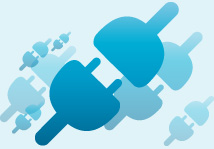General Chair
Wayne H. Wolf Georgia Inst. Of Technology, USA
wayne.wolf@ece.gatech.edu
Programme Chair
Bernd Kleinjohann Univ. of Paderborn, C-LAB, Germany
bernd.kleinjohann@c-lab.de
Programme Committee
Jean Arlat LAAS-CNRS Toulouse, France
Christophe Bobda University Kaiserslautern, Germany
Arndt Bode Technical University Munich, Germany
Joao M. P. Cardoso IST/INESC-ID, Portugal
Luigi Carro UFRGS, Brazil
Matjac Colnaric University of Maribor, Slovenia
Tom Conte North Carolina State Univ., USA
Alfons Crespo Lorente TU Valencia, Spain
Nikil Dutt UC Irvine, USA
Petru Eles Linkoeping University, Sweden
Rolf Ernst TU Braunschweig, Germany
Bernhard Eschermann ABB Switzerland Ltd., Switzerland
Joao Fernandes University of Minho, Portugal
Uwe Glässer Simon Fraser University, Canada
Luis Gomes University of Nova Lisboa, Portugal
Wolfgang Halang Fernuniversität Hagen, Germany
Uwe Honekamp Vector Informatik GmbH, Germany
Pao-Ann Hsiung National Chung Chen University, Taiwan
Kane Kim UC Irvine, USA
Raimund Kirner TU Vienna, Austria
Bernd Kleinjohann University of Paderborn, C-LAB, Germany
Lisa Kleinjohann University of Paderborn, C-LAB, Germany
Hermann Kopetz TU Wien, Austria
Johan Lilius TUCS, Finland
Ricardo J. Machado University of Minho, Portugal
Erik Maehle University of Luebeck, Germany
Baerbel Mertsching University of Paderborn, Germany
Vincent Mooney Georgia Institute of Technology, USA
Carlos E. Pereira UFRGS, Brazil
Luis Pinho ISEP-IPP, Porto, Portugal
Peter Puschner TU Vienna, Austria
Franz J. Rammig University of Paderborn, Germany
Achim Rettberg University of Oldenburg, Germany
Bernhard Rinner Klagenfurt University, Austria
Luis-Miguel Santana Ormeno ST Microelectronics, France
Henrique Santos University of Minho, Portugal
Klaus Schneider University of Kaiserslautern, Germany
Joaquin Sitte Queensland University of Technology, Brisbane, Australia
Edwin Sha University of Texas at Dallas, USA
Zili Shao The Hong Kong Polytechnic University, Hong Kong
Joachim Stroop dSPACE, Germany
Francois Terrier CEA/Saclay, France
Lothar Thiele ETH Zurich, Switzerland
Flavio R. Wagner UFRGS, Brazil
Klaus Waldschmidt University of Frankfurt, Germany
Wayne Wolf Georgia Institute of Technology, USA
Dieter Wuttke TU Ilmenau, Germany
Alex Yakovlev University of Newcastle, UK
Laurence T. Yang St. Francis Xavier University, Canada
|
 |


